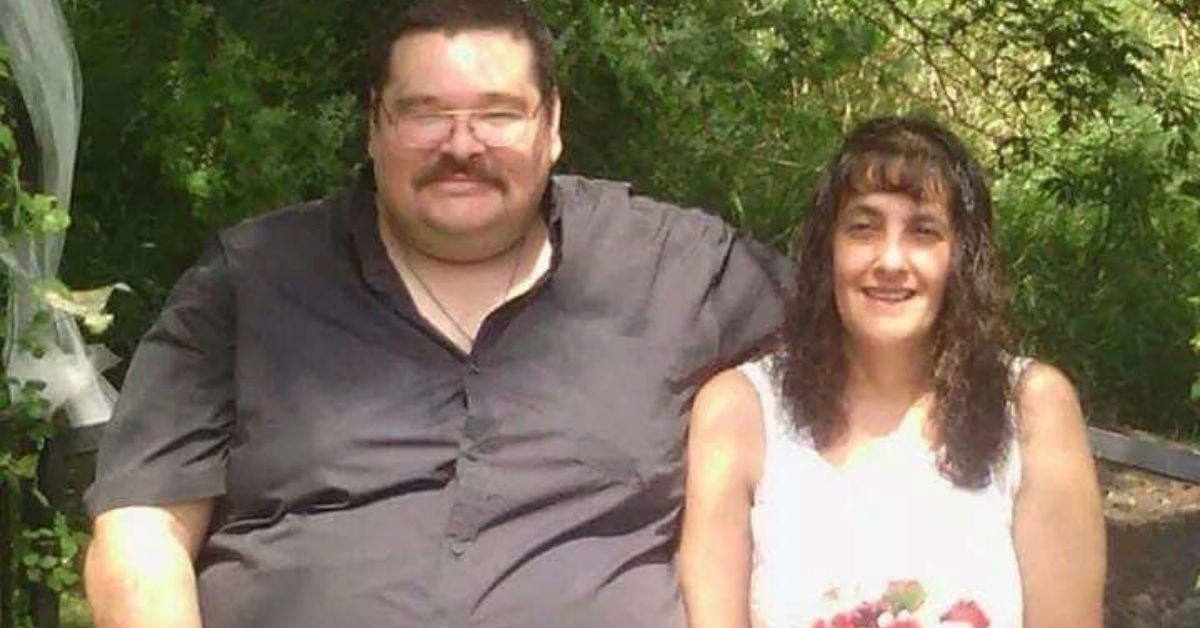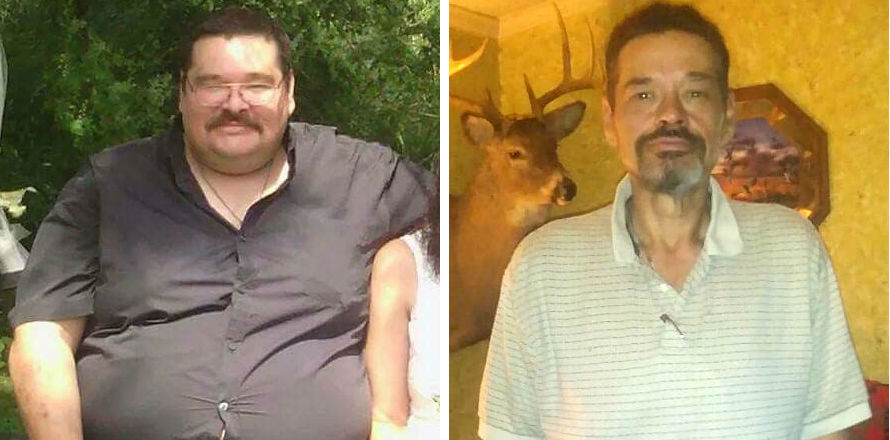Weighing 370 pounds and struggling with life-threatening high blood pressure and diabetes, Alan Vollmer found himself at a crossroads.
“I was set with two choices in life at that point, life or death. I chose life,” he says.
Something had to change, says Alan, who lives in Marinette. Dieting hadn’t worked. An intense fitness routine at his weight was out of the question. Then, in 2017, he sought help in the form of bariatric surgery.
“My life prior to any weight loss surgery that I had was non-existent,” Alan says. “It was a very sedentary lifestyle. I did not move around lot and when I did it was very short distances. The reason being I couldn’t breathe, I couldn’t function mentally or physically at the same time. That’s where I was at before the surgery took place.”
Alan was only in his late 40s, but he couldn’t complete simple tasks or enjoy life with his wife, eight children and 14 grandchildren. He spent almost all of his time on the couch.

“I didn’t sleep with my wife in bed anymore,” he says. “I had a CPAP machine, actually several CPAP machines, and couldn’t sleep with them on or with them off. I sat up in bed when I tried to sleep because the weight was so heavy on my chest that the restrictions I had for breathing at night were unbelievable.”
Type 2 diabetes and high blood pressure weren’t the only challenges Alan faced. He struggled with body image and self-esteem.
“The emotional part of it was when you get up every day and look in the mirror, you don’t like what you see. It’s not the person you used to be at one point in your life. … And before you know it, you turn around and look at yourself one day and the guy you used to know is gone,” he says.
The turning point came one day in the yard.
“I had fallen off a lawn mower of all things, a riding lawn mower,” Alan says. “I tore my rotator cuff and couldn’t get up. And I realized after 20 minutes of yelling and finally getting help … having to have several people help get me off the ground, that I had a problem. And it wasn’t going away, not on its own.
“As drastic as this procedure may sound to some people, it is the last resort for some people, and it was mine.”
Following a recommendation from his primary care physician, Alan turned to Dr. Daniel McKenna, an Aurora BayCare bariatric surgeon. McKenna performed Roux-en-Y gastric bypass surgery. The procedure creates a smaller stomach to restrict the portion size of food. It also creates a decrease in appetite that lasts for about a year.
Alan has since lost almost 200 pounds.
“The feeling you have after weight loss surgery and the success that I’ve had with it, is euphoric,” he says. “You have a sense of worth, self-worth, which you didn’t have for years before the weight loss. It gives you back a sense of pride in yourself and what you do. Simple things like going to the gas station and getting a cup of coffee in the morning. There are so many things that I could tell you that have changed as far as, how good it feels to be able do normal activities again. Where prior to weight loss, there was no normalcy of life as you would know it.”
After losing all that weight, Alan’s medication regimen has been slashed. He no longer has high blood pressure or diabetes.
Alan has become an avid outdoorsman and plans to visit some of Wisconsin’s waterfalls and travel to the Northwest to make memories with his family.
“Now that the weight loss has come to fruition and I’m down under my goal, which is great, my sons and I are going to go out west to Montana and hunt and do a big game hunt. We are going to be able to walk up and down mountains together. And it’s going to be the trip of a lifetime,” he says.
“It’s about making and building memories with my family, which I wasn’t able to do prior to surgery. And now once again in my life I am able to say that it’s a definite, it’s going to happen, this is where we are going to go and this is what we are going to do.”
Today, Alan lives life to the fullest. He travels, walks with his wife and grandchildren, and runs his own business, a physically-demanding venture. He couldn’t do any of that before weight loss surgery.

“My advice to everyone out there thinking about where they are going to go next as far as weight loss, you do the surgery, you live the lifestyle, after you’ve done it for two or three months. it’s no longer a chore,” he says. “You get used to the fact that this is now how you live your life, and you’re actually living life again.
“Don’t give up on yourself. And all you have to do is say yes to one thing. If you go through this world and say, ‘Oh., God, my life is terrible and I have all this weight,’ change one thing. Try changing one thing in your life. I did. And I look at myself today and I’m thanking God that I did. Because here I am. Without it, I wouldn’t be here today talking to anyone.”